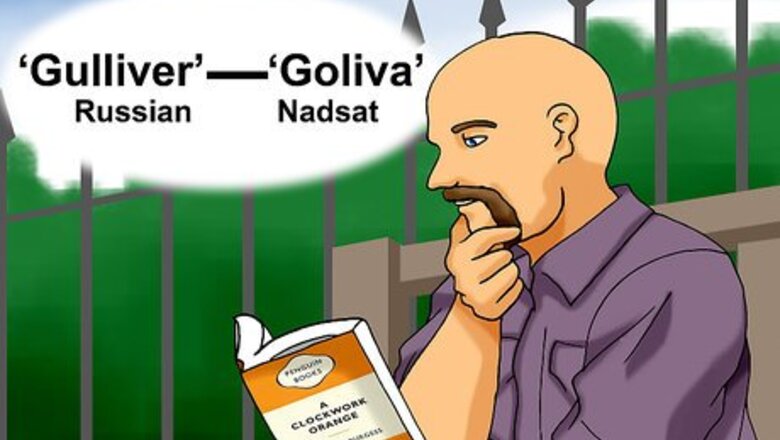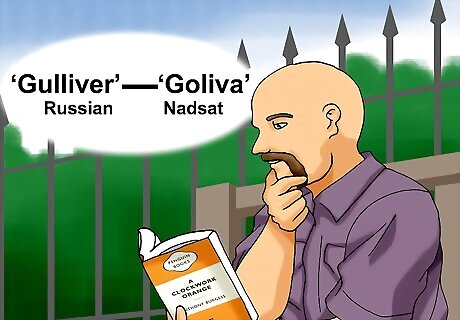
views
Understand what Nadsat is.

Nadsat is a fictional language mainly derived from Russian words, but with an Anglicized twist. For example, the Russian word “golova” (which translates into something along the lines of “head”) is written as “gulliver” in the book. While the words are spelled differently than their Russian counterparts, many words (such as "gulliver") still retain the original Russian meaning. There are words of other origins as well, such as French, German, and even some that Burgess invented.
Analyze each sentence.

Don’t just read it—comprehend it! Dissect the meaning and emotion behind the Nadsat lingo. Some of the more common words like “viddy,” “droog,” and “tolchock” will be easy to grasp, while some of the less common ones like “yeckat,” “zoobies,” and “vareet” will require a bit more contextual analysis. Use context clues to help you extrapolate your own definition.
Translate a sentence from the book.
Here's an excerpt from Part 1, Chapter 1. "There was a doddery starry schoolmaster type veck, glasses on and his rot open to the cold nochy air." From this sentence, we'd be able to immediately deduce a few things: we know that it mentions an old school professor ("schoolmaster" should give that away), he has glasses on, and some part of his body is open to the cold air (not many parts of the body can open or close, so it'd be either the eyes or the mouth (and for the sake of brevity, it's the mouth)). Here's what that same sentence would look like in normal English: "There was a strange old school professor, glasses on and his mouth open to the cold night air."
Compile your own glossary of Nadsat-to-English translations.

Write your interpretation on a piece of paper for future reference. Go back after you’ve finished the chapter and see if still makes sense.
Mentally replace the Nadsat words with English.

Reread the book while using your glossary. Once you can read the book without thinking what the words mean, you've mastered the language!



















Comments
0 comment